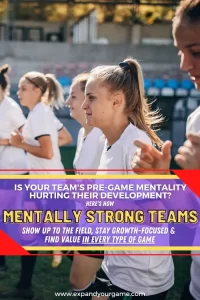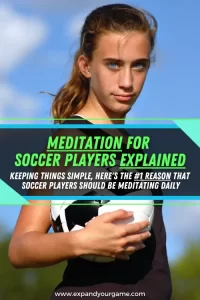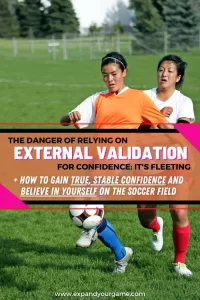Anxiety, frustration, anger and despair are just some of those feelings we can encounter when playing soccer. A ref made a call we don’t agree with. There’s a player on the other team who’s getting on our nerves. We miss an opportunity to score. We make a mistake and get scored ON. And on top of it all, we then get stuck replaying it over and over again in our heads, getting ourselves even more worked up and limiting our ability to play our best.

So, how do you self-regulate extreme emotions during a soccer game? Here are 3 tips for managing emotions in soccer, let’s dive in.
This Post Contains:
Tip #1: Keep your focus tuned to what you can control
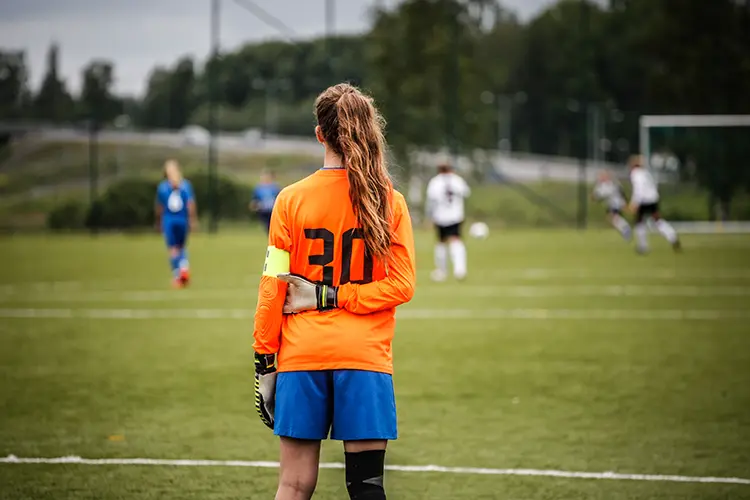
You ALWAYS HAVE THE OPTION to let the emotions control you, OR to shift your focus and choose to move your attention onto something else: such as things you can control. Redirecting your focus onto things that are within your control means choosing to concentrate on your communication, your movement, your ball control, your decision making, etc.
Tip #2: Do things OFF the pitch that will help you self-regulate ON the pitch

Tip #3: Harness the power of self-talk
Motivational & instructional self-talk
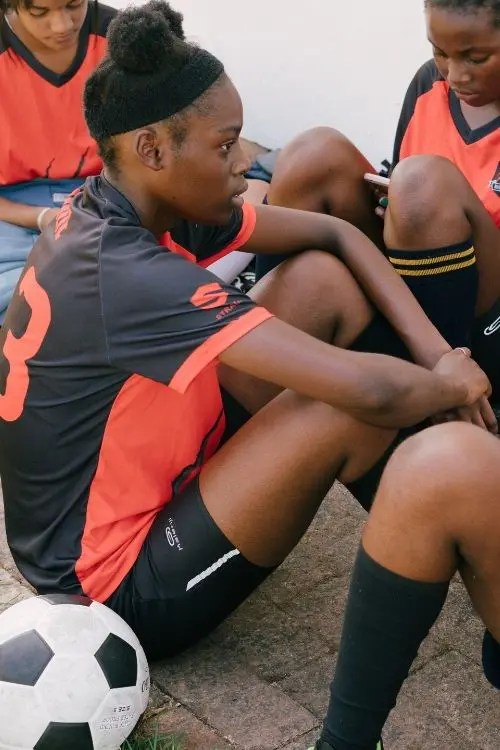
Grow your confidence through preparedness.
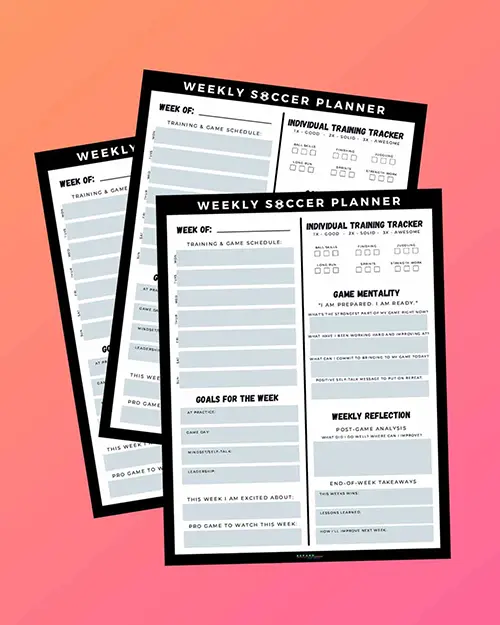
Subscribe to our email list to
Get your FREE Weekly Soccer Planner!
We respect your privacy. Unsubscribe anytime.
Symbolic labeling
You can use symbolic labeling by paying attention to how you are feeling in a soccer game, and then challenging yourself to identify your feelings with words. Doing this can help you get past the emotion faster and help you have a less extreme reaction.

(Symbolic labeling) I can’t believe I missed that shot. I’m getting discouraged.
Managing emotions in soccer is a skill you CAN learn
If you struggle to control your emotions or your thoughts during a soccer game, know that this is something you do have the power to change. It doesn’t have to continue to be this way, you don’t have to continue to get flustered and derailed when emotions start to surge. You are in control: of how you react AND in how good you get at soccer.

Hi everyone! I’m Jenn and I create content to help female soccer players and coaches maximize individual and team potential by developing healthy mindset skills. Join other subscribers and sign up for the newsletter for all my best tips and advice!
We respect your privacy. Unsubscribe anytime.


